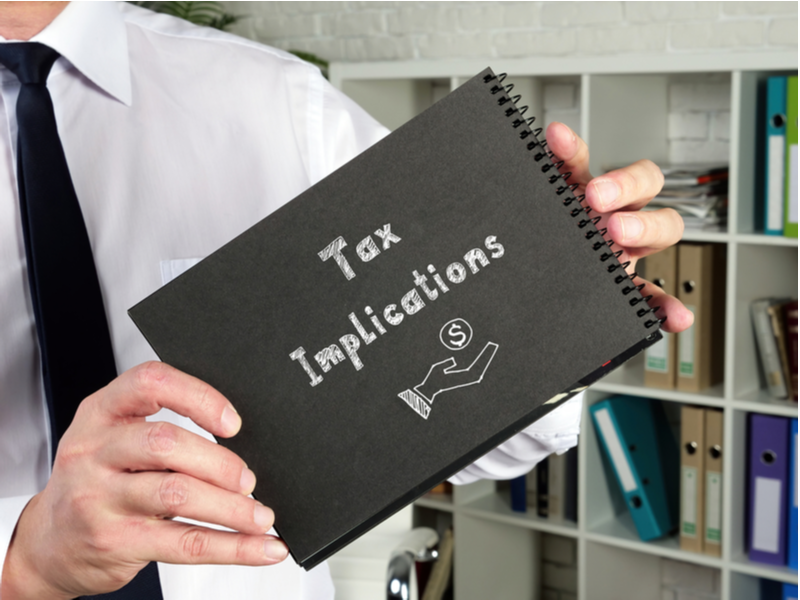
Investment in shares has become a major investment option for investors today. It allows them to earn higher returns as compared to traditional investment options like FDs, PPFs, Post Office Time Deposits, etc. Although the risks of investing in shares are quite higher than any other investment option, the returns in the long term compensate for such risks. Shares are a good investment option for all types of investors whether they are risk-averse or aggressive investors. Investors belonging to the former category can invest in large-cap companies and the latter category can target quality small-cap and mid-cap companies. However, the primary requirement for investment in shares apart from good initial capital investment is a Demat account. Earlier it was possible for investors to hold shares in physical form but now having a Demat account is imperative.
Read More – How Can I Check The Status of My Income Tax Returns?
The primary concern for every investor regarding any investment is its tax implications. Therefore, let us consider the Income tax implications on Demat accounts.
What is a Demat Account?
A Demat account is a digital account that holds the shares and other related securities in a digital format or a dematerialized format. This dematerialized form is the conversion of physical shares into the digital form to enable easy trading i.e. buying and selling of such securities through online as well as offline modes. Demat accounts are opened with depositories like NSDL and CDSL and intermediaries like Depository Participants and registered stockbrokers. The charges for opening the Demat account vary based on the guidelines of the stockbrokers and the Depository Participants. The process of opening a Demat account is quite simple and can be easily done online. India has witnessed a huge surge in the number of new Demat accounts that are opened in the post-pandemic phase.
What are the tax implications on Demat account transactions?
The income from the Demat account is in the form of capital gains as well as dividends. The tax treatment of such income in the hands of the investors is explained hereunder.
Capital gains
The capital gains in any investment arise when the investors liquidate or sell their investment at a value that is higher than its cost. The gains can be in the form of short-term or long-term gains depending on the period of holding of the asset.
- Short term capital gains
The short-term capital gains from investments held in the Demat account are when the shares or similar securities are held for a period of less than 12 months or a year. The short-term capital gains are taxable in the hands of the taxpayer and taxed at a flat rate of 15%.
- Long term capital gains
Long-term gains or LTCG on equity shares arise when the shares or similar security is held for a period of more than 12 months. The Income Tax Act provides relief to the taxpayers in the form of tax exemption for long-term capital gains up to Rs. 1,00,000. Any long-term capital gains over this exemption limit are taxed at the flat rate of 10% without the benefit of indexation.
Capital loss
Capital loss unlike capital gains occurs when the net sale value of the shares or similar security is less than its cost of acquisition. Similar to capital gains, a capital loss can also be in the form of short-term capital loss or long-term capital loss depending on the period of holding.
- Short term capital loss
Capital loss on shares or similar securities held for a period of less than 12 months is termed as a short-term capital loss. Taxpayers have the benefit of setting off this loss against any short-term capital gains or long-term capital gains for the current year. If there is any excess loss taxpayers can carry forwards the same for a period of 8 years.
- Long term capital loss
Capital loss on the sale of shares held for a period of more than 12 months is termed as a long-term capital loss. Unlike short-term capital loss, a long-term capital loss can be set off against long-term capital gains only. Any excess long-term capital loss can be carried forward for a period of 8 years.
Dividends
Dividends earned from investments held in the Demat account are taxable in the hands of the investors. These dividends are taxable at the applicable slab rates for the taxpayers. Furthermore, if the dividend to be received by a person from a company or through mutual funds is in excess of Rs. 5,000, TDS at the rate of 10% is applicable on such dividend payments.
How to save tax on Demat account transactions?
To save tax on Demat account transactions, you can follow these points:
- Invest in Equity-Linked Savings Scheme (ELSS) or Unit-Linked Investment Plan (ULIP). The investment made in ELSS and ULIP is eligible for a tax deduction of up to Rs 1.5 lakh per annum.
- Make sure to offset your capital losses (if any) against capital gains to arrive at lower tax liability.
Conclusion
The tax on income from the Demat account can be in various forms as mentioned above. On the other hand, an easier way to reduce the tax liability can be through investments in ELSS (Equity Linked Savings Scheme) funds or ULIPs (Unit Linked Investment Plans). These investments can result in tax savings of up to Rs. 1,50,000 under section 80C. Apart from these investments, taxpayers can also claim exemption up to Rs. 1,00,000 on long-term capital gains on the sale of shares or ELSS funds in the Demat account.
FAQs
No. Tax exemption on the sale of shares is available only on long-term capital gains.
Yes. Investors can easily open a Demat account with a registered stockbroker through the online or offline options provided by them.
The minimum lock-in period for investment in ULIPs is 5 years.
The maximum period to carry forward a short-term or a long-term capital loss for shares held in the Demat account is 8 years.
The basic KYC needed to open a Demat account is Aadhaar Card, PAN Card as well as residential proof.


























